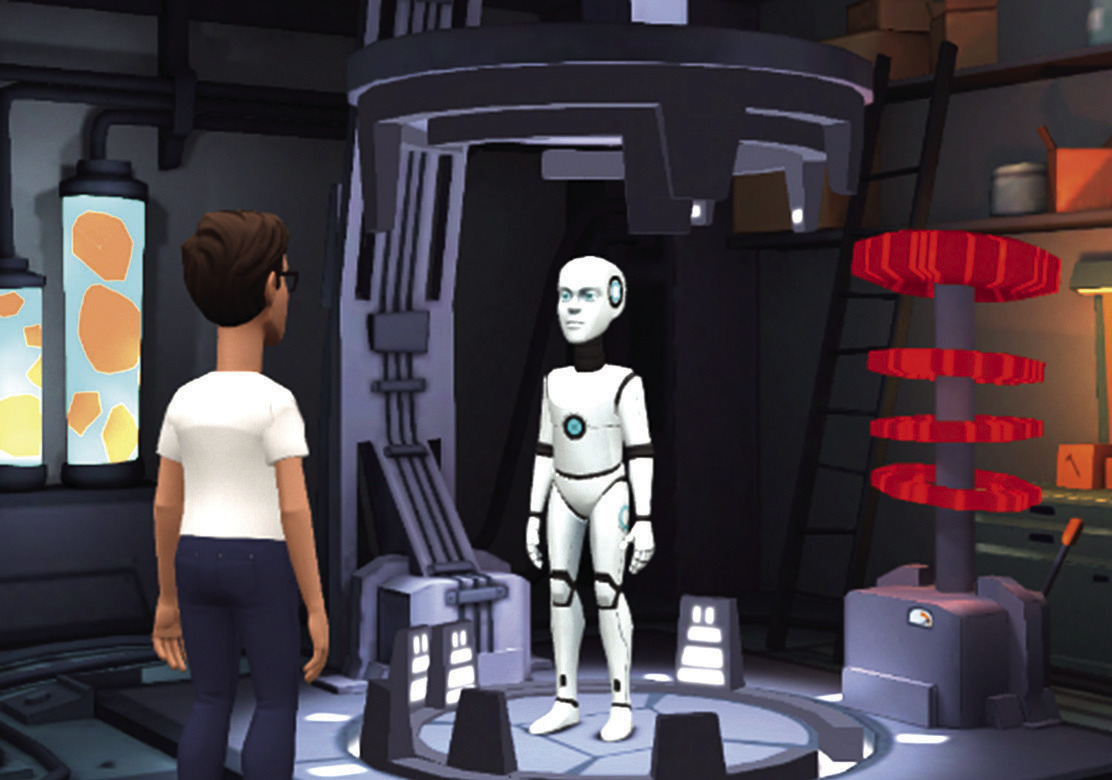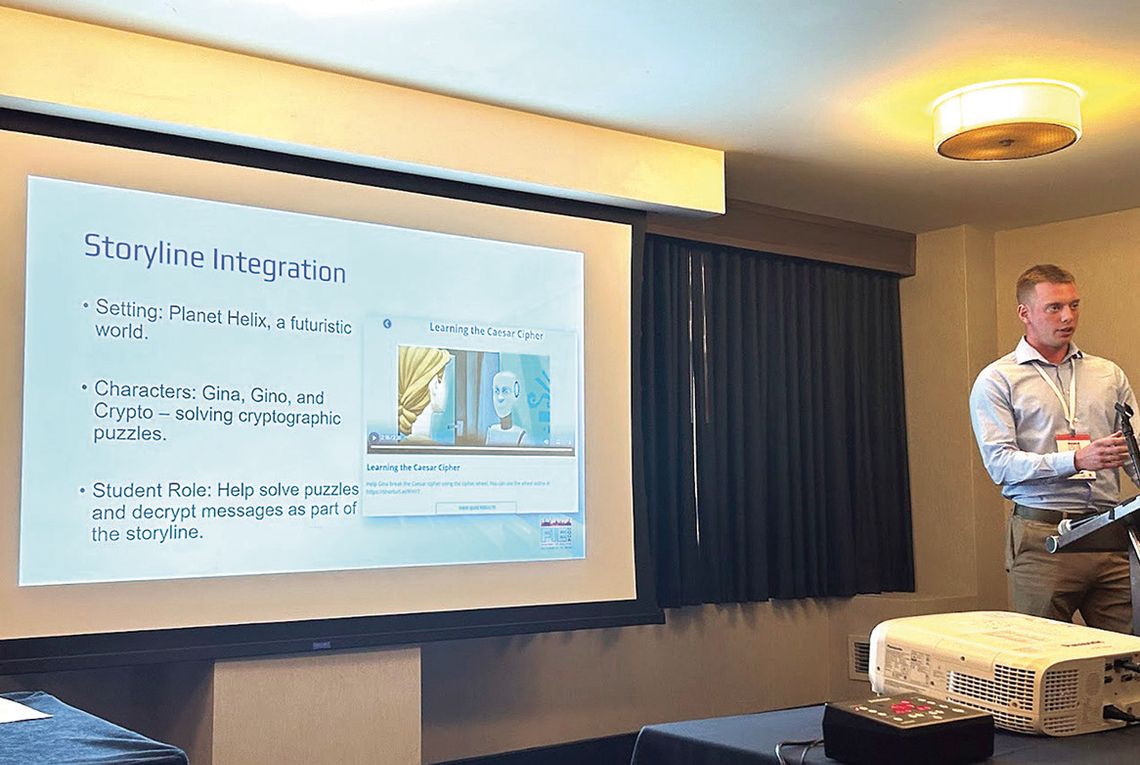Virginia Military Institute, in collaboration with Virginia Tech, has developed a project called “CryptoQuest,” which uses cartoon animations and virtual and augmented reality to teach high school and college level students cryptography, postquantum cryptography and cybersecurity in a more engaging and interactive way. The project is funded by a grant from the Commonwealth Cyber Initiative (CCI).
According to Sherif Abdelhamid, Ph.D., assistant professor in the Department of Computer and Information Sciences at VMI and project principal investigator, cryptography is a way to hide information so that only the right person can read a message. Post-quantum cryptography is about creating innovative methods to keep information safe, even from super-powerful computers like quantum computers. Cybersecurity is all about keeping systems, networks, data, and programs safe from online attacks.
VMI cadet Hayden Rose ’26, a computer science major from Grafton, Wis., recently presented a paper on the project titled, “CryptoQuest-Interactive Animation Series for Teaching Cryptography, Post-Quantum Cryptography, and Cybersecurity Using Extended Reality (XR)” at the Institute of Electrical and Electronics Engineers Frontiers in Education (FIE) Conference in Washington, D.C. FIE is a major international conference on educational innovations and research in engineering and computing education. The paper was authored by Abdelhamid; Maj. Blain Patterson, assistant professor in applied mathematics; Maj. Sarah Patterson, assistant professor in applied mathematics; Rose, and recent VMI graduates, Rukshana Sarkari ’24, and Gabriele Woodward ’24. Rose had also presented the paper at the CCI Student Researcher Showcase last March, where he won an award for best presentation.
Rose explained how the program works: “Students watch a video in a series assigned by their teacher that presents the concepts of the lesson in the context of a story. The students are then tasked with helping the characters in the story by interacting with the virtual environments to find clues. The students can use these clues in the assignments and when they submit correct work, they are able to progress the storyline.”
CryptoQuest is an ongoing project, and will be completed by the end of the academic year, but new episodes will be added over time.

TWO CHARACTERS, “Crypto” and “Gino” as they appear in CryptoQuest.– Photo illustration courtesy of Sherif Abdelhamid, Ph.D.
.jpg)



